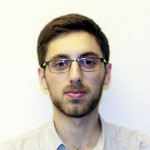President Salovey’s email listing changes aimed “toward a better Yale” was silent on Next Yale’s demand for an ethnic studies requirement. But the demand deserves a response, if only because it raises a good question: What should a Yale education be for, if it is for anything in particular?
 Well, some kind of knowledge. What kind? Yale students are a diverse group. We come from many cultures and climes, and have numerous interests. It seems with all of this diversity, the only thing Yale can hope to do is to provide us with knowledge of what we share: our humanity. A Yale education ought to provide, at the very least, humanistic knowledge.
Well, some kind of knowledge. What kind? Yale students are a diverse group. We come from many cultures and climes, and have numerous interests. It seems with all of this diversity, the only thing Yale can hope to do is to provide us with knowledge of what we share: our humanity. A Yale education ought to provide, at the very least, humanistic knowledge.
What is humanistic knowledge? Or rather, what are the questions that all humans should ask?
Some will reply immediately that the search for the “human” questions is hopeless. Instead, all thought, and therefore all opinion about human questions, is nothing more than the product of circumstance. The Socratic inquiry into virtue and knowledge is just the quaint musing of an aristocratic, heterosexual male, who founded a discourse that has for centuries oppressed the non-aristocratic portion of humanity.
If that is so, not only should we scotch the “great books,” we should ignore most of the ideas and perspectives they offer. More crucial are the questions of our own circumstances, and the question of ethnicity is surely one of them. An ethnic studies class is therefore as properly a part of a Yalie’s education today as classical philosophy was of the educations of Yalies past.
As others before me have shown, arguing that a thought or work is merely a “product of its time” — and therefore important only historically, not philosophically — is self-defeating. How is that thought itself not a product of its time? We would have to stand outside history — outside time and circumstance — to answer that question.
So all thought is a product of its time — an assertion that, “as a product of its time,” would deserve not a wit of attention, except as an interesting historical artifact — or we stand outside history (a pretty arrogant assumption). Or, perhaps, we are starting from basically the same perspective as people of other cultures and times, and can therefore learn from other cultures and times about things that concern us.
And a fundamentally common perspective is required if we are to learn from one another. There cannot be dialogue unless others can understand our ideas as we understand and wish to convey them. Otherwise we are not really having a discussion: all are simply donning their critical lenses to see through what others say to grasp merely whatever circumstance caused them to say it.
Which brings us to ethnic studies. It seems that ethnicity is not inherently a part of the human experience, the way politics, friendship, and beauty are. We invented it as a category to divide human beings. It is not an issue for humans qua humans, but an issue for certain people depending on where they find themselves. Surely not all communities have dealt with questions of ethnicity, and surely many people even today go through their lives without it concerning them. But the same is not true of the political questions raised by “The Republic.” We have yet to find the community without politics.
None of this is to say that ethnicity isn’t worth studying. Rather, ethnicity is just one of many matters our leaders will have to address. It properly belongs on the list of subjects in which one might specialize, but not on the list of matters which a humanistic education must by its very nature address.
Some will reply that an education that does not address an issue as urgent as ethnicity is inherently lacking. But we can only address ethnicity as, say, a political issue if we first know how to address political questions as such. That is, before we inquire into the peculiarities of ethnicity in America, we should ask the general questions about the proper role for politics and law in human life.
And our answers will help us address not only ethnicity but also other matters. Our problems are not so unique. It is in discovering their eternity, and their similarity with the problems of “other” times and places, that a liberal education begins.
Cole Aronson is a sophomore in Calhoun College. His column runs on Mondays. Contact him at cole.aronson@yale.edu .







